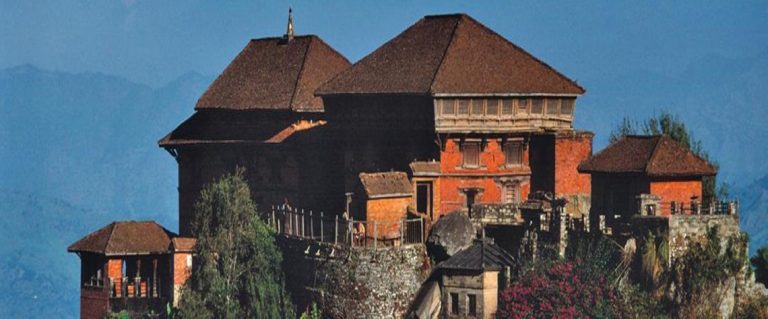
Gorkha is a beautiful hill town with a long and illustrious history. It is indeed is a mountainous town 110 kilometers east of Pokhara with a population of 20,600 people. It is 23 kilometers from the Abu Khaireni turnoff, which is roughly halfway between Pokhara and Kathmandu. Gorkha is a national pilgrimage site since it is the ancestral seat of the Shah dynasty and the birthplace of the first Gurkha warriors.The Gorkha Durbar, a fort, palace, and temple built in the 17th century with spectacular views of the Manaslu Mountain, is its focal point. A visit to Manakamana Temple, a hilltop temple near Gorkha Durbar, is recommended to visit while visiting Gorkha Durbar. It is accessible by trekking (3 hours) from Abu Khaireni or by cable car from Cheres on the main highway (96 km from Pokhara).
King Prithvi Narayan Shah, who unified Nepal’s empire in the eighteenth century, was born in Gorkha’s town. Gorkha, located on a tiny hillside at an elevation of around 1000 meters, gives a panoramic view of the snow-capped mountains. Gorkha Durbar is a diverse package. This location includes Nepalese history. Gorkha is also more than a place; it is a way of life for Nepalese people. Many people have seen or heard of the Gurkhas’ courage on the battlefield. People are excited to visit this location since it has numerous songs about battles and victories to sing.
Under the dynasty of Ram Shah (1604-1641 A.D.), the tiny kingdom of Gorkha, created by ruler Drabya Shah in 1560 A.D., became famed for being kind to his people. In those days, there was a popular phrase that claimed if you wanted justice, you should go to Gorkha.Hundreds of tiny kingdoms and principalities existed in what is now Nepal around the middle of the eighteenth century. In the eighteenth century, the great Prithvi Narayan Shah took on the huge job of uniting Nepal.The Gorkha warriors finally conquered the Kathmandu valley under his vigorous and successful leadership. Since then, Kathmandu has been the capital of Greater Nepal. However, for many Nepalese and foreign visitors, this lovely hamlet has long been the focus of attention.
The historical palace, Gorkha is roughly a one-hour walk uphill from the bus station, on the top of the fortified hill above the town. The Goddess Gorakhkali temple is located on the west side of the palace.Guthi and pilgrims offer to sacrifice several male goats at Kali Temple during the Dashain festival in October and March. Yogis from the Hilly area receive initiation, get their ears pierced, and have discs with Gurus placed in the temple. There is also a well-known cave that houses Gorakhnath Baba’s statue (sage).The name Gorkha is thought to have been taken from the name of this sage, whose blessings encouraged King Prithvi Narayan Shah to unite Nepal. You’ll pass the old Royal Guest House if you exit through the northern gate; you can observe the sexual roof trusses and crocodile carvings on the window frames.A trail leads down from here to a huge chautara (stone resting platform) on an exposed rocky bluff with spectacular views and a series of engraved stone footprints ascribed to Sita, Rama, Gorakhnath, and Guru Padmasambhava, among others.The view of Manaslu and Himalchuli from the top of the hill above Gorkha palace and from a saddle east of the bazaar is breathtaking.
The 16th-century Gorkha Durbar is a fort, palace, and temple all in one, and is considered by many to be the crowning beauty of Newari architecture. The main building miraculously survived the 2015 earthquake, although the damage was significant, and repairs were still underway at the time of research.Gurkhas or Gorkhali is a Nepalese name that denotes the valor of the troops who battled with great courage and honor. Visitors visiting Gorkha will find a wealth of attractions.The incredible Shah Regime Gorkha Durbar, which has withstood many conflicts, the Gorkha Bazaar, which is bustling with locals and local goods, the old Gorkha museum, the breathtaking Himalayan views, the holy Mount Manaslu, and several hiking routes. Gorkha’s history is connected with its present. So, if you’re interested in history, this location will undoubtedly take you to a different era.
-Article written by: Saru Niraula for Land Nepal